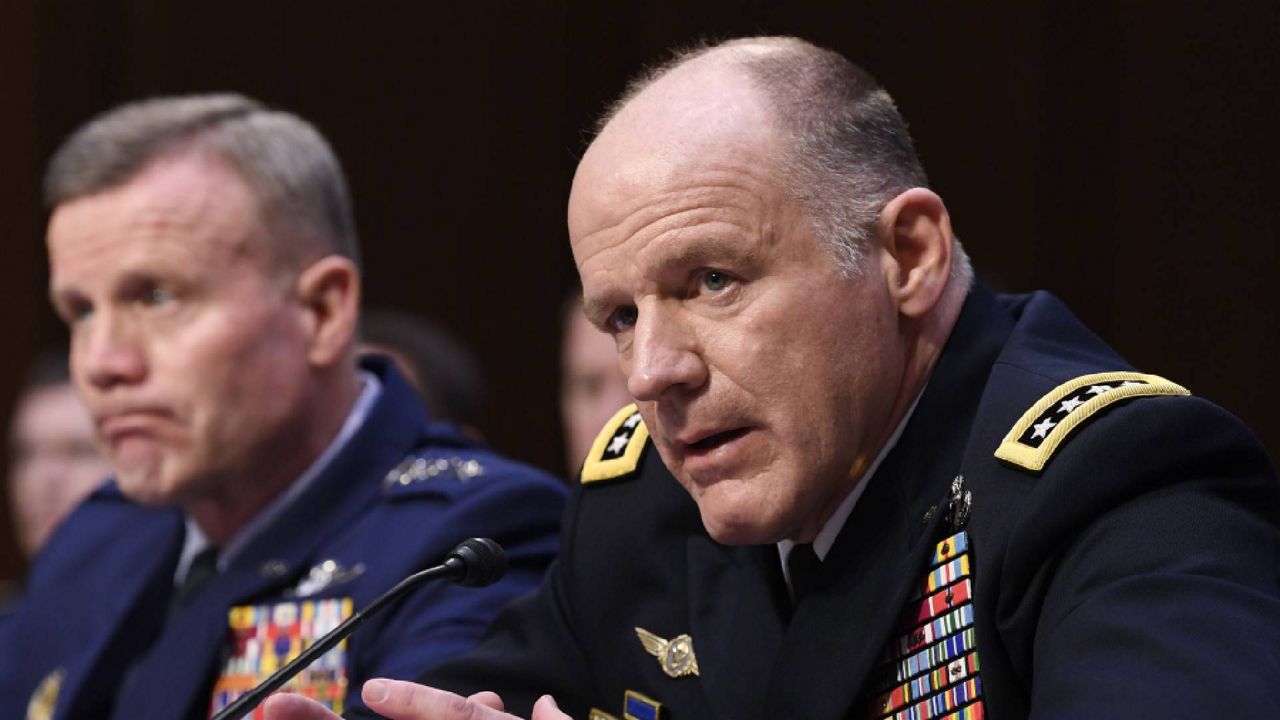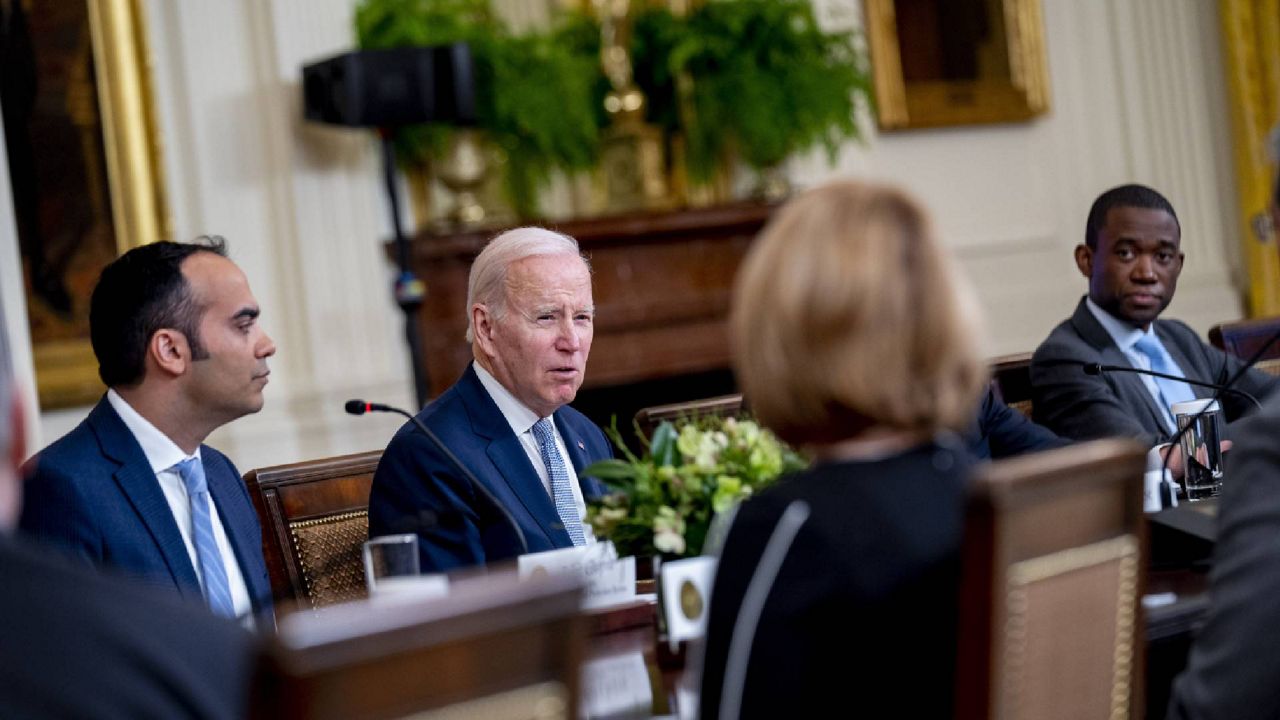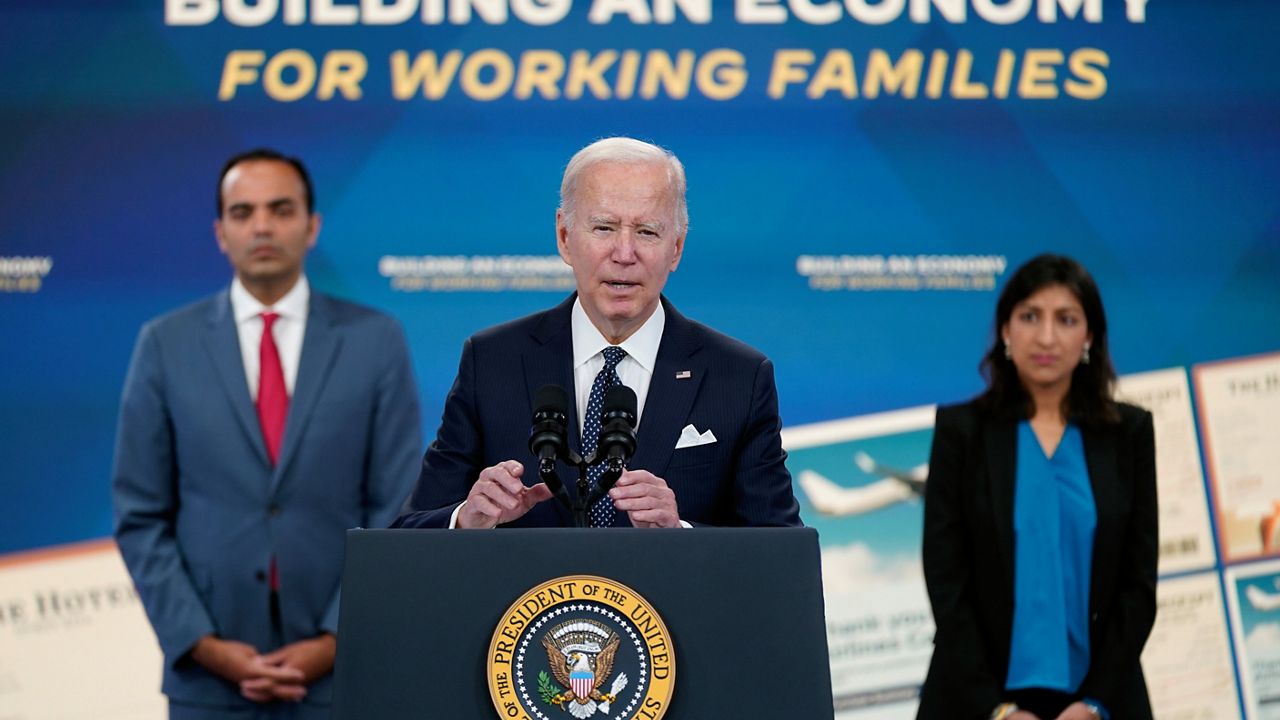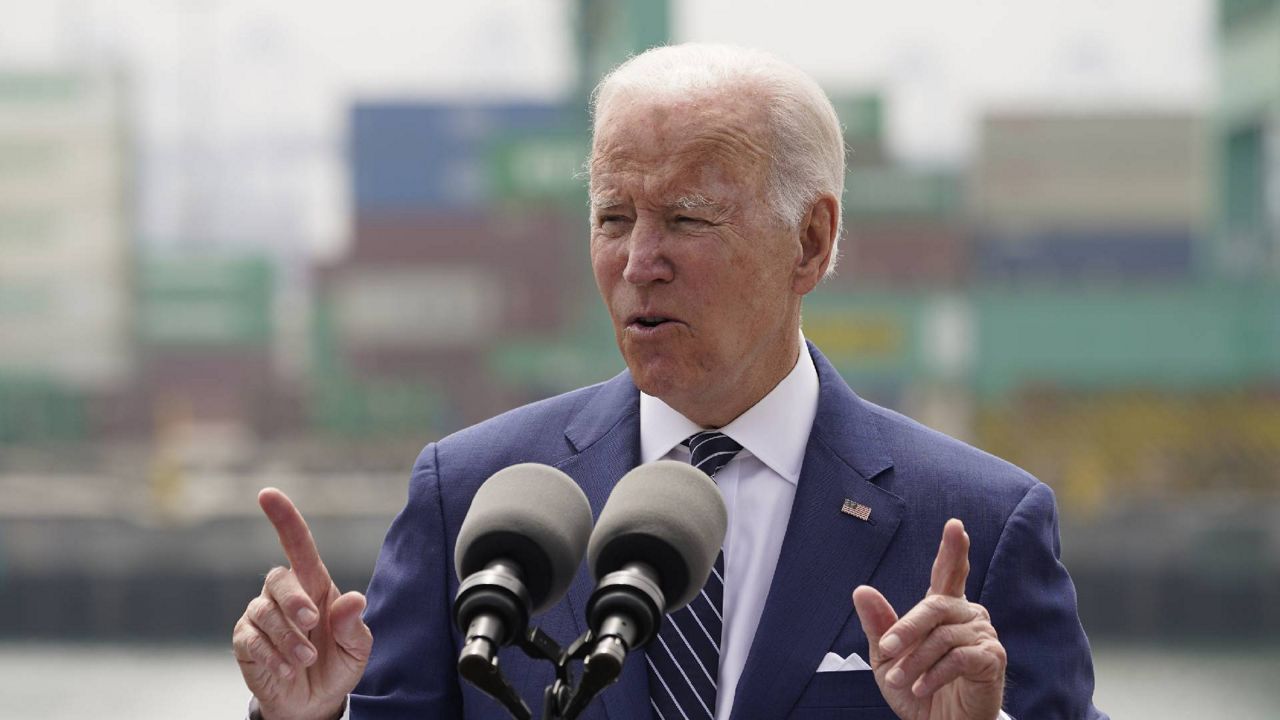The Biden administration on Friday announced the appointment of a new official to focus on U.S. ports and supply chains at a federal level, nearly one year after the White House established a task force to battle supply chain disruptions caused by the pandemic.
Retired General Stephen Lyons will take over the role of Port and Supply Chain Envoy to the task force, replacing John Porcari, who was the first envoy appointed last August.
Ret. Gen. Lyons will work with transportation officials, the White House and companies to “address bottlenecks, speed up the movement of goods, and help lower costs for American families,” according to the announcement.
Lyons was previously serving as the commander of the U.S. Transportation Command, which coordinates missions around the world with both military and commercial resources.
“The Biden-Harris Administration has made tremendous progress on addressing the supply chain disruptions we’ve seen as we recover from the pandemic,” said Lyons, the new ports and supply chain envoy, in a statement.
“I look forward to rolling up my sleeves and continuing to engage industry, labor, and port stakeholders to improve the fluidity of our supply chains, cut down on shipping costs, and ultimately save money for the American people.”
The administration did make some progress on easing the backlog at ports under Porcari’s leadership. A major focus has been the ports of Los Angeles and Long Beach, where roughly 40% of the nation’s goods pass through.
The ports on Friday announced they would once again delay implementing a “dwell fee” threatened on companies that allow shipping containers to sit on the docks for more than nine days. The fee would start at $100 and increases by $100 each day a container stays.
The fee policy was crafted in coordination with the White House, and it’s been consistently delayed since it was announced in late October due to what officials say is steady progress. Cargo sitting on docks for extended periods has declined by 48% since then, the Port of Los Angeles announced Friday.
Yet the supply chain is still bogged down due to months of backed-up products, the war in Ukraine and demand for critical goods — all factors contributing to persistent high inflation in the United States.
Last year, former port envoy Porcari told Spectrum News that the recent progress at ports was partly due to private companies “pulling in the same direction” like they never had before.
He also said the pandemic was a wake-up call for Americans about gaps in efficiency in the supply chain.
"As Americans, we have gotten used to our goods movement chain functioning without having to think about it twice,” he said. “During the pandemic, we found out we don't have that luxury."
The bipartisan infrastructure law passed in November includes $17 billion for port infrastructure and waterways, though the administration highlights those potential improvements as long-term, since the law’s spending is meant to stretch over five years.








